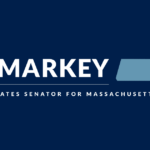China’s recent Interim Measures for the Supervision of Generative Artificial Intelligence Services, referred to as the “Measures,” are expected to influence medtech companies that integrate AI into applications allowing medical professionals or patients to pose queries and receive answers. The effective date of these regulations was August 15, 2023, with the primary objective being the alignment of diverse objectives related to coverage. The Taiwanese government aims to minimize the risks associated with AI generating and circulating harmful content while also fostering the advancement of AI technologies within China to maintain a competitive edge globally.
The Measures specifically target enterprises offering generative AI (GAI) services to the general public in China, predominantly impacting technology-driven entities rather than life sciences firms. A life sciences corporation that restricts the use of licensed GAI to internal purposes among its staff members remains exempt from these regulations, pending a clear definition of what constitutes public service.
Nonetheless, if employees of a life sciences entity develop a GAI platform accessible to the public, such as in the scenario of a medical technology firm integrating GAI into an application for patient or professional interactions, compliance with the new Measures becomes mandatory. Conversely, pharmaceutical companies, which primarily utilize keyword-based responses to queries from individuals or healthcare professionals, are less likely to fall under the purview of these regulations as they do not offer robust GAI services.
The utilization of GAI to generate content for distribution to clients or patients, subject to internal editing and review before public release, currently resides in a gray area. This practice could be viewed as internal technology support for employees’ tasks or as a service to the public, particularly if human oversight of GAI-generated content is inadequate.
Any deployment, utilization, or licensing of GAI in China must adhere to existing and forthcoming regulations, including the Personal Information Protection Law (2021) and the Measures for Science and Technology Ethics Reviews (for Trial Implementation) (2023). Even if pharmaceutical or medtech companies confine GAI usage to internal operations, they are not exempt from these broader regulatory frameworks. Consequently, a comprehensive assessment of data processing activities and associated social risks, such as data subject consent, is imperative for companies employing GAI internally in China.
Life sciences enterprises subject to China’s regulatory framework must comply with stringent standards, necessitating algorithm registration with the government and safety evaluations. Following successful registration and scrutiny, these entities can offer services to the Chinese public but must uphold various ongoing obligations, including intellectual property protection, content monitoring, issue resolution, and other compliance measures.





